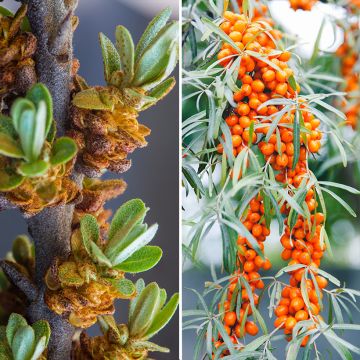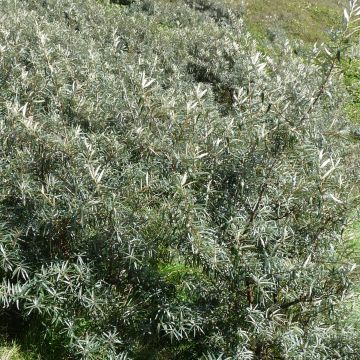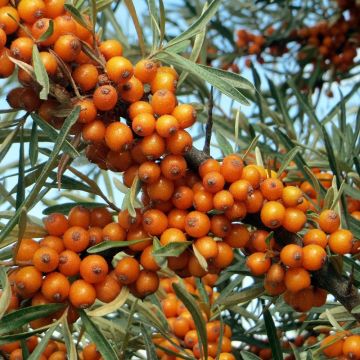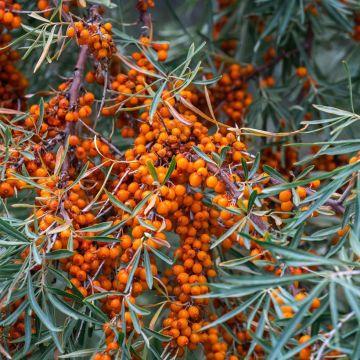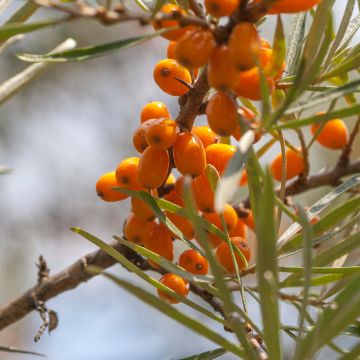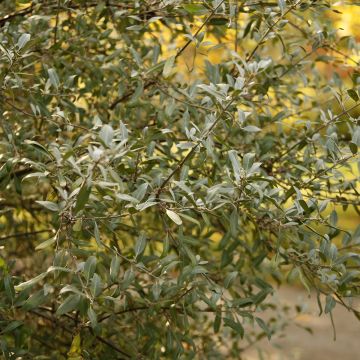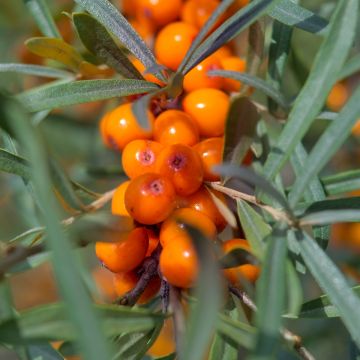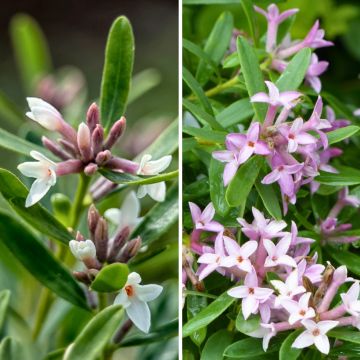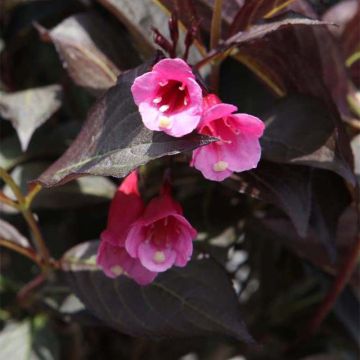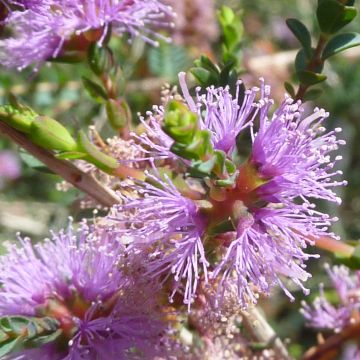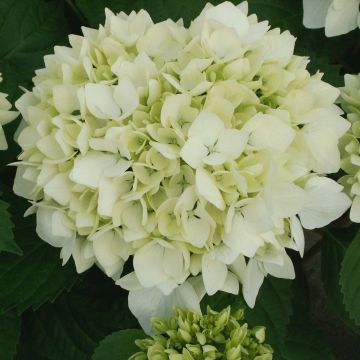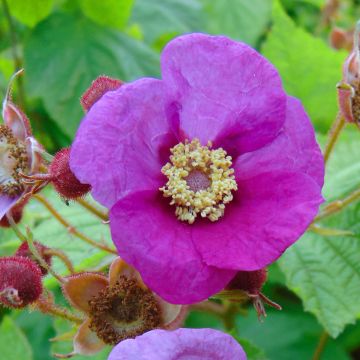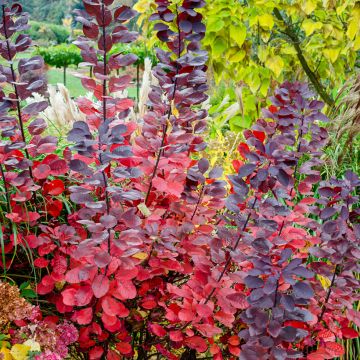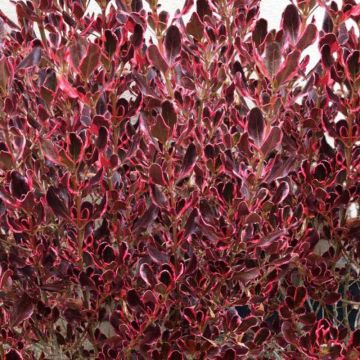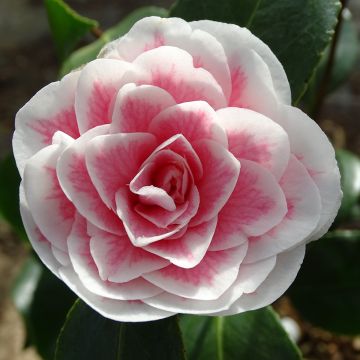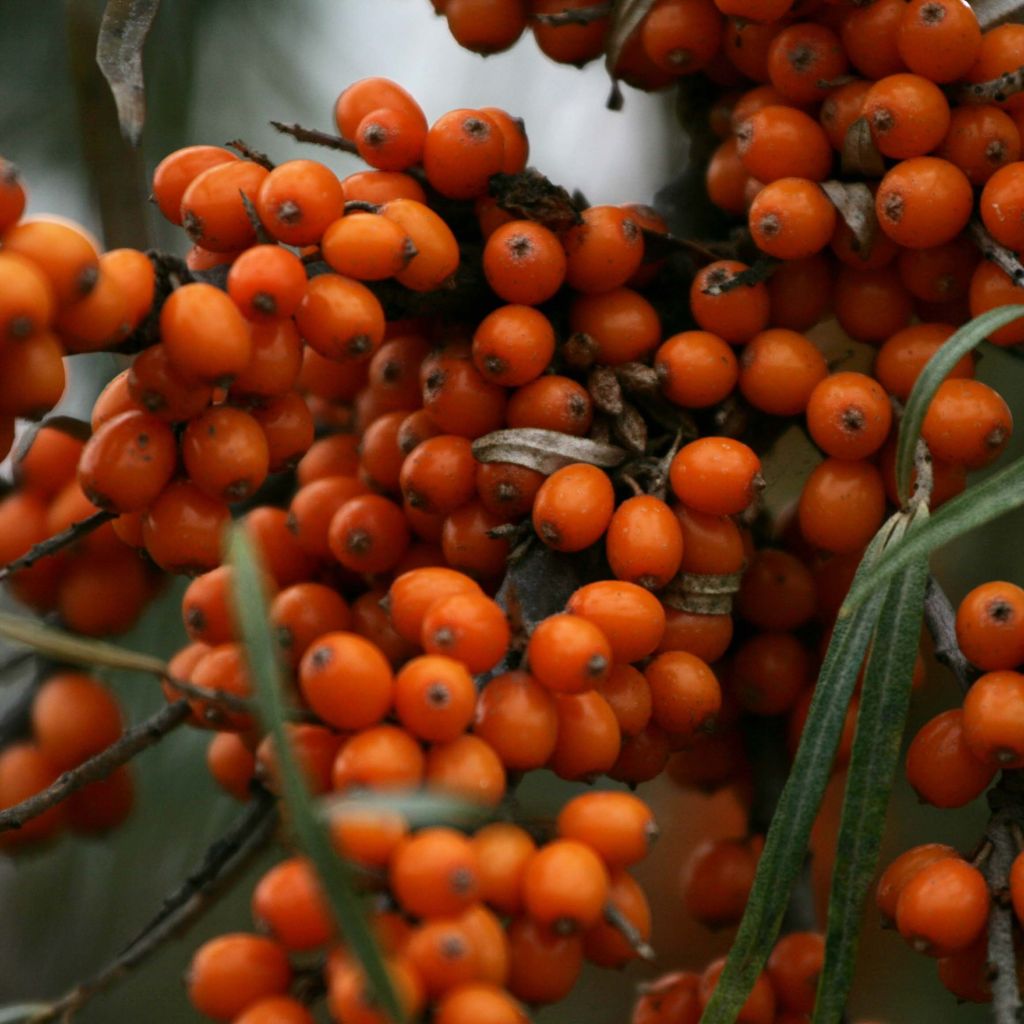

Hippophae rhamnoides Friesdorfer Orange
Hippophae rhamnoides Friesdorfer Orange
Hippophae rhamnoides Friesdorfer Orange
Common Sea-buckthorn, Seaberry
No surprise, my young plant died; there simply wasn't any root upon arrival. I gave it a try, but without success. A shame, as I'm usually delighted with the quality of Promesse de Fleurs' young plants.
CÉDRIC, 23/07/2025
Special offer!
Receive a €20 voucher for any order over €90 (excluding delivery costs, credit notes, and plastic-free options)!
1- Add your favorite plants to your cart.
2- Once you have reached €90, confirm your order (you can even choose the delivery date!).
3- As soon as your order is shipped, you will receive an email containing your voucher code, valid for 3 months (90 days).
Your voucher is unique and can only be used once, for any order with a minimum value of €20, excluding delivery costs.
Can be combined with other current offers, non-divisible and non-refundable.
Why not try an alternative variety in stock?
View all →This plant carries a 24 months recovery warranty
More information
We guarantee the quality of our plants for a full growing cycle, and will replace at our expense any plant that fails to recover under normal climatic and planting conditions.
Would this plant suit my garden?
Set up your Plantfit profile →
Description
The Friesdorfer Sea Buckthorn Orange (Hippophae rhamnoides) is a self-fertile variety, bearing large dark orange berries. Seedless and very rich in vitamin C, they can be consumed as jams, jellies or syrups. Sea Buckthorn is a spiny bush with rapid growth, thriving in ordinary or poor soils. Plant it as a free hedge, defensive hedge or in isolation. It is ideally planted in autumn for a harvest starting from September.
Sea buckthorn produces small round or oval berries, orange in colour, with a tangy flavour. Rich in vitamin C and antioxidants, these sea buckthorn berries are consumed in the form of jams, syrups or jellies. They are also used in cosmetics, in the form of oil extracted from the seeds and pulp.
The flowers, very small and green in colour, appear in April before the foliage. Apart from a few self-fertile varieties, sea buckthorn bears either male flowers or female flowers (dioecious plant). Fruiting then requires having a plant of the opposite sex, and a male plant can pollinate three to five female plants. The berries will be produced on the female bushes from the 2nd or 3rd year. The Friesdorfer Orange variety is a self-fertile variety.
Sea buckthorn, not to be confused with the strawberry tree, is found both in mountainous areas and on coastal dunes, as it helps fight soil erosion. It is a dense and spiny bush with rapid growth, reaching a height of 3 to 5 m (9 ft 10 in to 16 ft 5 in). Its dense root system has the particularity of fixing nitrogen in the soil. Its deciduous leaves are narrow and elongated, dark green with a silvery grey underside.
This very hardy shrub can withstand temperatures as low as -30°C and tolerates drought perfectly. In the garden, sea buckthorn can be planted as a free hedge, defensive hedge or in isolation. It will bring a decorative aspect with its orange fruits, which remain throughout the winter.
Report an error about the product description
Hippophae rhamnoides Friesdorfer Orange in pictures
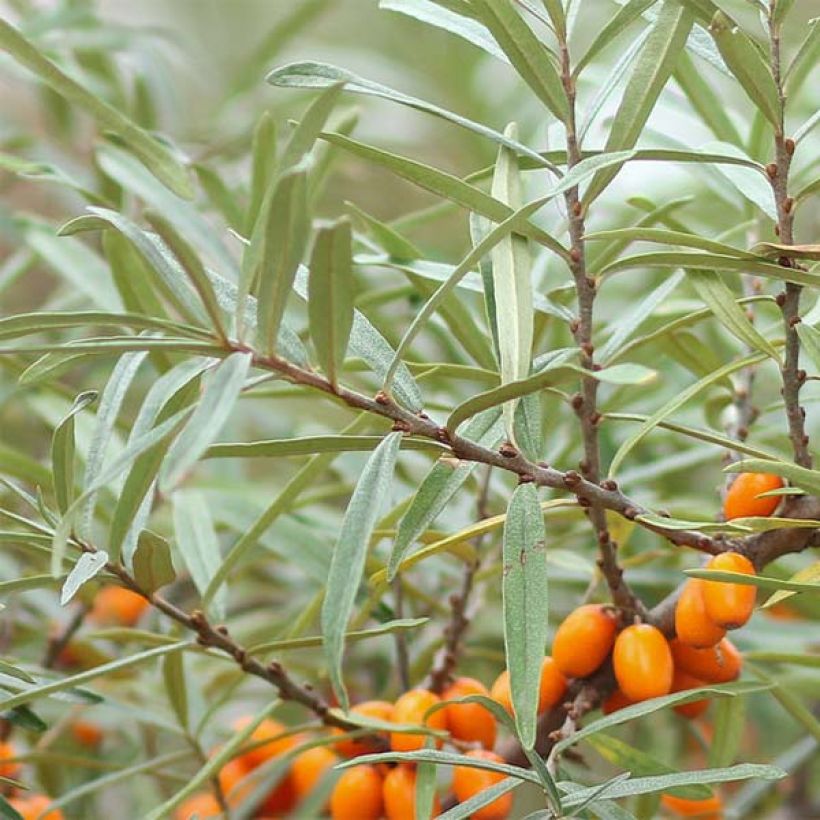

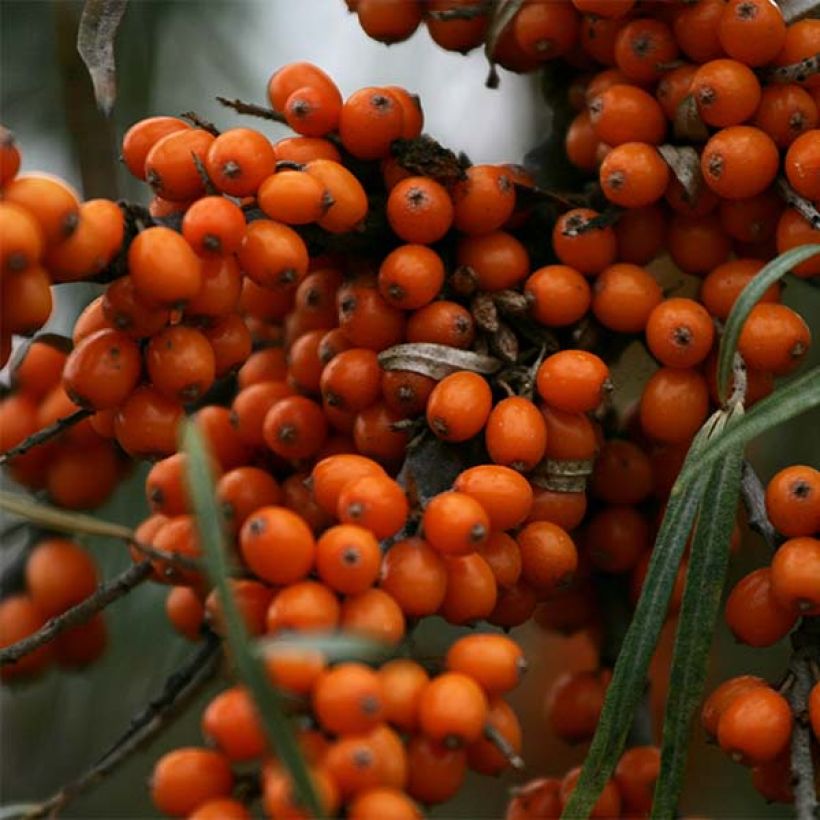

Plant habit
Flowering
Foliage
Botanical data
Hippophae
rhamnoides
Friesdorfer Orange
Eleagnaceae
Common Sea-buckthorn, Seaberry
Western Europe
Other Hippophae
View all →Planting and care
Sea buckthorn is ideally planted in autumn or, failing that, in spring. Choose a sunny location. Sea buckthorn can adapt to all types of soil and will thrive in ordinary or even poor soils. Soak the root ball in water for a few moments before planting. Dig a wide and deep hole. Place the root ball and cover with soil. Water at the time of planting. Afterwards, watering will not be necessary.
Hardy, resistant to diseases and pests, sea buckthorn does not require any special care.
Planting period
Intended location
Care
-
, onOrder confirmed
Reply from on Promesse de fleurs
Similar products
Haven't found what you were looking for?
Hardiness is the lowest winter temperature a plant can endure without suffering serious damage or even dying. However, hardiness is affected by location (a sheltered area, such as a patio), protection (winter cover) and soil type (hardiness is improved by well-drained soil).

Photo Sharing Terms & Conditions
In order to encourage gardeners to interact and share their experiences, Promesse de fleurs offers various media enabling content to be uploaded onto its Site - in particular via the ‘Photo sharing’ module.
The User agrees to refrain from:
- Posting any content that is illegal, prejudicial, insulting, racist, inciteful to hatred, revisionist, contrary to public decency, that infringes on privacy or on the privacy rights of third parties, in particular the publicity rights of persons and goods, intellectual property rights, or the right to privacy.
- Submitting content on behalf of a third party;
- Impersonate the identity of a third party and/or publish any personal information about a third party;
In general, the User undertakes to refrain from any unethical behaviour.
All Content (in particular text, comments, files, images, photos, videos, creative works, etc.), which may be subject to property or intellectual property rights, image or other private rights, shall remain the property of the User, subject to the limited rights granted by the terms of the licence granted by Promesse de fleurs as stated below. Users are at liberty to publish or not to publish such Content on the Site, notably via the ‘Photo Sharing’ facility, and accept that this Content shall be made public and freely accessible, notably on the Internet.
Users further acknowledge, undertake to have ,and guarantee that they hold all necessary rights and permissions to publish such material on the Site, in particular with regard to the legislation in force pertaining to any privacy, property, intellectual property, image, or contractual rights, or rights of any other nature. By publishing such Content on the Site, Users acknowledge accepting full liability as publishers of the Content within the meaning of the law, and grant Promesse de fleurs, free of charge, an inclusive, worldwide licence for the said Content for the entire duration of its publication, including all reproduction, representation, up/downloading, displaying, performing, transmission, and storage rights.
Users also grant permission for their name to be linked to the Content and accept that this link may not always be made available.
By engaging in posting material, Users consent to their Content becoming automatically accessible on the Internet, in particular on other sites and/or blogs and/or web pages of the Promesse de fleurs site, including in particular social pages and the Promesse de fleurs catalogue.
Users may secure the removal of entrusted content free of charge by issuing a simple request via our contact form.
The flowering period indicated on our website applies to countries and regions located in USDA zone 8 (France, the United Kingdom, Ireland, the Netherlands, etc.)
It will vary according to where you live:
- In zones 9 to 10 (Italy, Spain, Greece, etc.), flowering will occur about 2 to 4 weeks earlier.
- In zones 6 to 7 (Germany, Poland, Slovenia, and lower mountainous regions), flowering will be delayed by 2 to 3 weeks.
- In zone 5 (Central Europe, Scandinavia), blooming will be delayed by 3 to 5 weeks.
In temperate climates, pruning of spring-flowering shrubs (forsythia, spireas, etc.) should be done just after flowering.
Pruning of summer-flowering shrubs (Indian Lilac, Perovskia, etc.) can be done in winter or spring.
In cold regions as well as with frost-sensitive plants, avoid pruning too early when severe frosts may still occur.
The planting period indicated on our website applies to countries and regions located in USDA zone 8 (France, United Kingdom, Ireland, Netherlands).
It will vary according to where you live:
- In Mediterranean zones (Marseille, Madrid, Milan, etc.), autumn and winter are the best planting periods.
- In continental zones (Strasbourg, Munich, Vienna, etc.), delay planting by 2 to 3 weeks in spring and bring it forward by 2 to 4 weeks in autumn.
- In mountainous regions (the Alps, Pyrenees, Carpathians, etc.), it is best to plant in late spring (May-June) or late summer (August-September).
The harvesting period indicated on our website applies to countries and regions in USDA zone 8 (France, England, Ireland, the Netherlands).
In colder areas (Scandinavia, Poland, Austria...) fruit and vegetable harvests are likely to be delayed by 3-4 weeks.
In warmer areas (Italy, Spain, Greece, etc.), harvesting will probably take place earlier, depending on weather conditions.
The sowing periods indicated on our website apply to countries and regions within USDA Zone 8 (France, UK, Ireland, Netherlands).
In colder areas (Scandinavia, Poland, Austria...), delay any outdoor sowing by 3-4 weeks, or sow under glass.
In warmer climes (Italy, Spain, Greece, etc.), bring outdoor sowing forward by a few weeks.






























